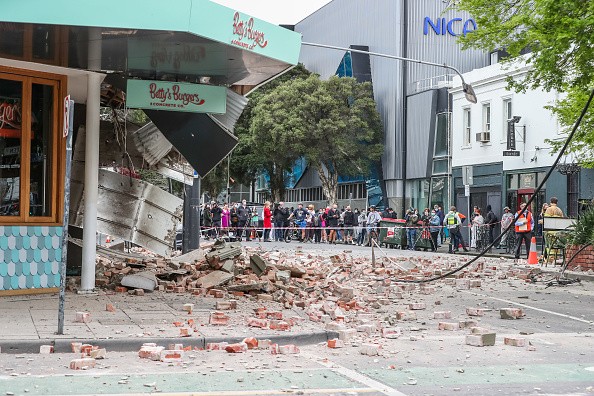
Ten earthquakes struck Puerto Rico recently, but there has been no recorded tsunami threat to the island, the Caribbean, or even the U.S. East Coast.
Earthquakes in Puerto Rico
According to the USGS, majority of the earthquakes occurred in Puerto Rico's southwest, with just a single quake in the west.
There was no risk of a tsunami as a result of the earthquakes' tremors. They ranged from a magnitude 2.5 to a magnitude 2.9 event in intensity. Near Guanica, Puerto Rico, a 2.9 magnitude earthquake hit the area.
There is a good chance that today's tremors are the result of a 2020 earthquake. A 6.4 earthquake struck Puerto Rico in January 2020, causing considerable damage, including major power outages throughout the island.
In December 2019, an earthquake swarm began here, and the seismic disturbance has persisted since then, according to Weather Boy.
Also Read: Can Pets Predict an Incoming Earthquake? Animals' Eerily Amazing Perception May be the Key
Where Did the Quakes Occur?
Earthquakes along South America's northern coast may be traced to the Caribbean Plate, a massive oceanic tectonic plate located under Central America.
The Caribbean Plate shares borders with the Nazca and Cocos plates. Seismic activity, such as earthquakes, tsunamis, and volcanic eruptions, are constantly generated along the plate borders.
After an earthquake make sure to inspect the area to ensure no one has been injured; use clean gauze or cloth if available to provide direct pressure on the wound; give CPR if someone isn't breathing and don't move them unless they're in risk of severe damage; keep wounded people warm by covering them with blankets; medical attention should be sought for significant injuries.
Checking For Hazards After an Earthquake
Fire dangers - call for aid immediately if you see a fire in your house or neighborhood.
Gas leaks - turn off main gas valve ONLY if you suspect gas leaks due to damaged pipes or odors.
Electrical wiring issues - if there is any wiring problem in your home, turn off the electricity at the control box.
Do not touch downed or damaged utility wires or any things that come into contact with them.
Medicines, pharmaceuticals, and other hazardous items like bleach and lye must be cleaned up once they've been accidentally spilled.
In the event of a damaged or collapsed chimney, employ extreme care while approaching and refrain from using the damaged chimney (it could start a fire or let poisonous gases into your house)
When you open the doors of closets and cabinets, be on the lookout for falling goods.
Check food and water - don't eat or drink anything out of open containers near smashed glass.
For power outages, prepare meals that won't go bad fast or that has been frozen (food in the freezer doesn't go bad for at least a couple of days).
© 2025 NatureWorldNews.com All rights reserved. Do not reproduce without permission.





